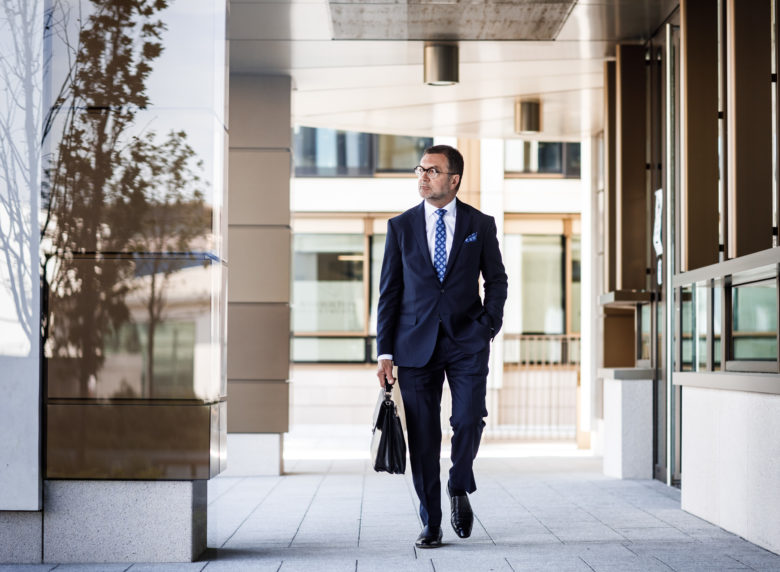That puts me in the middle of relationships that have taken a down-turn and it highlights the conundrum family members always grapple with: Do I own and control, or do I “trust”?
Insights | 3rd December 2019
Private wealth – answering the conundrum: Whether to own and control, or to “Trust”.
My work involves “unlocking” assets where the potential to deliver value is blocked. Perhaps by the financing drying up, a dispute over title, the impact the asset has on third parties, or tactical litigation from unscrupulous third parties hoping for a pay-out by putting up obstacles through frivolous claims.
The key to resolution frequently lies in overcoming relationship barriers. I see that as a recurring theme in my work.
These “locked asset” issues keep part of my working week firmly within the private wealth area, working with wealthy individuals and family offices. Here, the issues translate into dealing with tensions between family members, between beneficiaries or dominant family members and trustees or independent directors and, again, within the board of the (family or trust owned) investment companies. The issues arise when the actions or achievements of the entrusted individuals don’t match the family’s expectations.
That puts me in the middle of relationships that have taken a down-turn and it highlights the conundrum family members always grapple with: Do I own and control, or do I “trust”?
For the generation that created the wealth, the issue is: “I’m advised to settle my wealth into trust for succession planning, to protect against divorce, and to protect my child against undue influence. But I’m told that means I will no longer own the wealth I spent 30 years accumulating, and others will call the shots.”
For the next generation, it’s different: “I alone made the business decisions that put my late-father’s trust fund where it is, and I know how to get through the next steps. Why is the trustee (whom I didn’t select and over whom I seem to have no clout) refusing to do what I say?”
The right choice of trustee is critical – but will the individual you think you can rely on then change employer, or, in the case of the business-owner, sell his trustee business to buyers with a different appetite for the sort of client-base and assets under management your wealth offers? Eyes need to be kept wide open.
Ownership and control should only be divested where the implications are fully understood. But if it’s retained in individual hands, beware the succession issue. See case study links below – good lessons learned from the experience I’ve gleaned.
There is no “one size fits all” solution, but the Single Family Office grew from the “own and control, or trust” conundrum.
Earlier in my career I represented beneficiaries in the famous Abdul Rahman case in Jersey, where the trustee (a subsidiary of a US bank) bowed to influence from the settlor with the disastrous result that the trust was declared by the Court to be invalid. The assets therefore reverted to the settlor’s estate, with unwanted forced heirship consequences in view of his domicile at death. The court dissected the “sham” concept in its application to a trust.
So, as settlor or beneficiary, how do you gain confidence that things will go as you wish? Until the trust is established and funded, there’s always the option of not going ahead, not “entrusting,” and keeping ownership and control in firm grasp. But in that case it’s still not plain sailing. Beware the succession issue in one of the case studies mentioned above, and plan in advance. Once the trust is up and running, with independent trustees or in-house through a family office, it’s down to external and internal relationships and the ability to draw views together. In each case, I come in where gaps exist.
Those gaps can be closed by a non-family member in the middle with no self-interest or an axe to grind. Someone who knows what activity and risk-level a trust can be appropriate for, what tools they can offer. Someone with the knowledge and experience to know when reason and compromise aren’t working and that the trust needs somehow to be unraveled or the client extricated with his fair share, and how to go about that. I have occupied that role as a lawyer, and in my post-legal career at Gardner Hillman with intimate involvement as a director of trustee companies and of trust-owned companies, as well as being an adviser to beneficiaries. I have helped trustees become comfortable by moderating risk or by standing up to challenges from third parties. I have helped beneficiaries adjust their positions and by guiding trustees with foggy vision through the mire until they can see clearly. I have found compromises that work. I have used (and defended) litigation appropriately, and fought off underhand tactics where there were no compromises.
Case studies:
In the middle of family conflict
An enduring trust-based relationship with a private family
We use cookies to ensure you get the best experience on our website - Learn more




